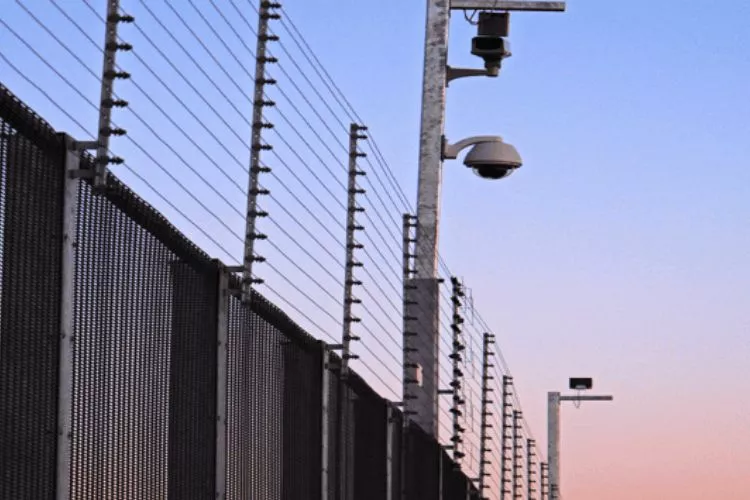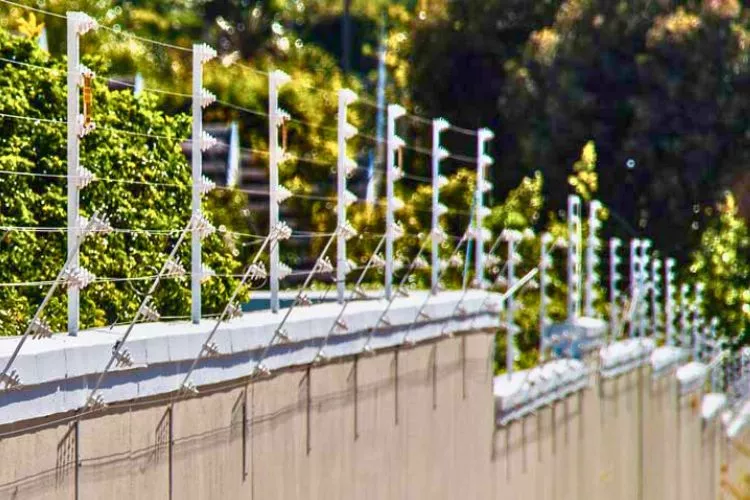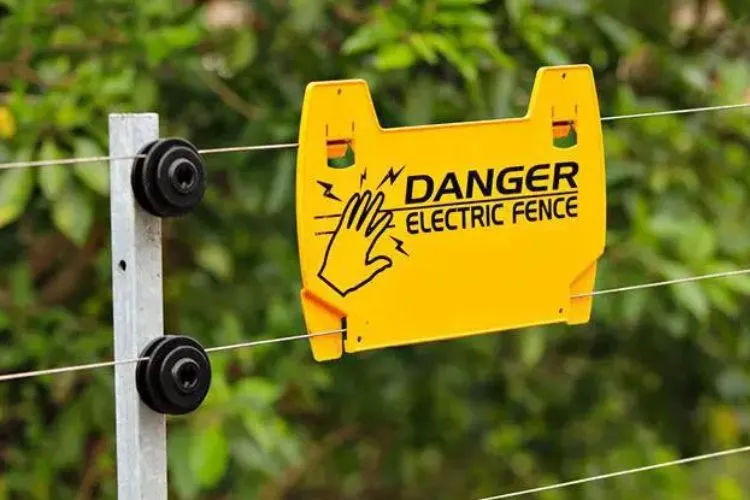In the property protection and security world, electric fences have emerged as a popular option to keep intruders at bay. Before deciding to invest in this modern safeguard, it’s essential to understand the legalities surrounding its use.
Here I will discuss the regulations governing electric fences, their legality in different jurisdictions, and considerations for responsible implementation.

Are electric fences legal?
Electric fences are legal in many jurisdictions, provided they adhere to specific regulations and guidelines. These rules often include requirements like displaying visible warning signs, maintaining minimum height and distance from public areas, and ensuring compliance with electrical safety standards.
However, the legality of electric fences may vary by region, so it is crucial to check and comply with your local laws, ordinances, and zoning restrictions. Electric fences could be limited or prohibited in certain scenarios, such as in residential neighbourhoods. Thus, understanding and adhering to local regulations is imperative for the legal and responsible implementation of electric fences.
Can I use an electric fence for home security?
Yes, you can use an electric fence for home security, as it deters intruders and protects your property. However, it is crucial to research and adhere to your local laws and regulations governing electric fences to ensure compliance.
Several options for electric fences are available on the market, specifically designed for home security purposes. These fences incorporate advanced technology and can be customized to match the specific needs of your property. When implementing an electric fence, install visible warning signs to inform potential intruders of its presence.

Electric fences can be a valuable addition to your home security system. However, it’s essential to consider local laws and implement them responsibly to avoid potential legal issues.
Do electric fences need to be signed?
Yes, electric fences do require warning signs. Such regulations exist to ensure the safety of others around the property. Local zoning laws usually dictate the requirements for the placement of these signs. The signs must be highly visible during both day and night. In some areas like Fort Worth, Texas, regulations require them to be posted at intervals of 25 feet, both inward and outward, around the perimeter of the electric fence.
It’s crucial to note that these requirements can vary depending on where you live, so it’s important to research and adheres to local laws and regulations to ensure safety and avoid potential legal issues.
Do you need a permit to put a fence around your property?
You generally need a permit to erect a fence around your property. The requirement often varies depending on factors such as the material of the fence (e.g., masonry, concrete, wood, PVC), the height and location of the fence, and the specific ordinances of the city where you live. For instance, a privacy fence in your backyard might not require a permit unless it exceeds 6 feet, while the height limit for a front yard fence could be less. It’s crucial to check with your local city or county’s planning or zoning department to understand the specific rules applicable in your area to avoid legal issues or even potential fines.
Electric fence safety regulations
Understanding and adhering to electric fence safety regulations is vital to ensure proper installation and usage while minimizing risks to humans and animals. This article details a few essential safety regulations to follow when installing and maintaining electric fences:

1. Proper Installation and Grounding
Electric fences must be professionally installed to guarantee safe and effective operation, following the manufacturer’s guidelines. Also, the fence’s proper grounding is essential to prevent short circuits and dangerous discharges.
2. Height and Distance Regulations
Electric fences typically have height and distance requirements depending on the location and zoning laws. Adhering to these regulations ensures the fence does not pose a risk to unsuspecting passersby or animals.
3. Visual Warnings
Clear and visible warning signs must be displayed to make people aware of the electric fence and minimize accidental contact. Local laws often dictate the frequency and placement of these signs.
4. Routine Maintenance
Regular inspection and maintenance of electric fences are crucial to ensuring safe operation and detecting potential hazards. This includes checking for vegetation intrusions, rusted wires, damaged connections, and the efficiency of the fence’s electrical components.
5. Animal Safety
For electric fences to contain livestock or protect gardens, choosing appropriate and humane voltage levels is necessary. This requirement ensures animals are deterred but not seriously harmed by the fence.
Adhering to electric fence safety regulations is essential when considering using them for property security or animal containment. Consulting local laws, zoning ordinances, and best practices can help you ensure your fence is installed and maintained safely and responsibly.
Other laws and regulation related articles you may find useful: Do I need a permit to move a shed? | Do You Need A Permit For A Gravel Driveway?
frequently asked questions (fAQs)
Are electric fences legal in residential areas in Texas?
Yes, electric fences are generally legal in residential areas in Texas, but they must comply with local laws and regulations. These regulations often include fence height restrictions, appropriate distance from the public right of way, and the installation of visible warning signs. It is essential to consult with your city or county’s zoning department to understand the specific rules and safety guidelines for residential electric fences in your area.
What are the fence laws in Georgia?
In Georgia, fence laws predominantly focus on livestock containment and boundary fences. While no statewide fence regulations exist, local jurisdictions often establish guidelines for fence height, placement, and ownership responsibilities. It’s critical to check with your local authorities or review your city or county guidelines to understand the specific fence laws applicable in your area.
What is the new fence law in Texas?
Answer: Texas recently adopted the “Purple Paint Law” (HB 25), which allows landowners in rural areas to mark fence posts and trees with purple paint to indicate “no trespassing” in place of signs or warnings. This law was officially passed on September 1, 2019, to clarify property boundaries and deter potential trespassers.
Can my neighbor put up an electric fence?
Answer: Your neighbor may install an electric fence on their property if it adheres to local regulations and safety guidelines. These typically include fence height restrictions, appropriate distance from public areas, and displaying visible warning signs. If you have concerns about your neighbor’s electric fence, it’s important to communicate with them and verify whether they have abided by local laws and regulations.
Conclusion:
The legality of electric fences depends greatly on the specific laws and regulations of your local jurisdiction. While electric fences offer a practical solution for property security and livestock containment, they must be installed and maintained in adherence to local guidelines to ensure safety for all.
These regulations may include specific measurements for fence height and distance, the installation of warning signs, and regular maintenance.
Therefore, it is vital to well-inform yourself about these details before installation. Lastly, open communication with neighbors can ensure a harmonious living environment, given the potential hazards of electric fences. Safety, compliance, and communication are key in a nuanced issue like this.
